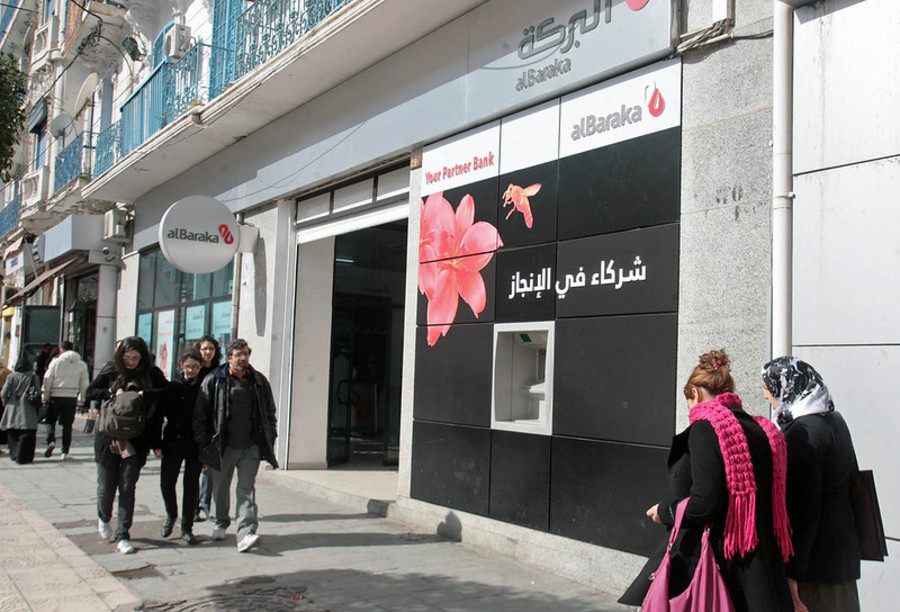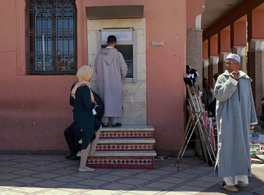Conferences and debates
Index / Activities / Conferences and debates / Islamic Finance in Algeria: New developments and prospects
Islamic Finance in Algeria: New developments and prospects
February 18, 202110:30 (Central European Summer Time (CEST), UTC +2)
ONLINE
Online at Casa Árabe`s Youtube Channel.
10:30 (Central European Summer Time (CEST), UTC +2)
In English.
On Thursday, February 18, we offer this round table on our YouTube channel that will analyze the changes introduced over the last year by the government for the promotion of Islamic finance in Algeria, in the hands of experts and representatives of the banking sector in the country.
In August 2020, Algeria’s National Bank officially launched its Islamic finance services. At the end of January this year, the Algerian government has just presented also a draft executive decree to regulate takaful (insurance services complying with Islamic Shariah law) business. These developments are part of a broader governmental policy to promote Islamic banking in the country. The declared objective is to integrate those sectors of the population still out of the banking sector and mobilize funds into the economic system from the informal market, which Algerian Central Bank estimates that may amount to $30 or $35 billion.
Some experts believe that Islamic banking could attract customers who refrain from operating with conventional banks due to religious considerations or to avoid lending or borrowing money with interest. Islamic banking in Algeria has been operating since 1991, when Al Baraka Group opened its branch there, Al Baraka d’Algérie, joined in 2008 by Al Salam Bank-Algeria. However, till recently it has remained a small niche of the banking industry. Mobilizing those funds could introduce liquidity and ease the socioeconomic situation in the country, in a context of low oil prices and economic crisis exacerbated by the Pandemics.
Program (PDF)
10:30 Roundtable
Fatiha Talahite, Senior Researcher with the CNRS and Member of Cresppa-GTM (Centre de Recherches Sociologiques et Politiques), Paris
Mohamed Boudjellal, Professor of Economics, Université de M’Sila, Algeria
Zakaria Slimani, Assistant to the General Manager, Bank Al Baraka of Algeria
Abdelhafid Benamraoui, Principal Lecturer in Finance, University of Westminster, London
Moderator: Olivia Orozco, Education and Economics Coordinator, Casa Árabe
11:45 Debate with members of the Observatory and participants
First reaction: Gonzalo Rodríguez, General Coordinator, SCIEF
The SCIEF-Casa Árabe Observatory of Islamic Finance in Spain is a group for analysis and consultation to expand knowledge about the current state of Islamic finance. It includes the main experts, consultants, law firms and banking institutions working with or being specialized in the subject in Spain.
Related activities: Islamic Finance in North Africa: Development and prospects for growth in Morocco
According to the World Bank, only 42% of the Algerian population over 15-years-old has an account in a financial institution, a mere 29% made an active use of it and just a 2% made payments using a mobile phone or the internet (G20 Financial Inclusion Indicators Database, data of 2017).
The roundtable, organized in the framework of the SCIEF-Casa Árabe Observatory of Islamic Finance in Spain, will analyze the new changes and regulation put into place into the Algerian banking system to identify the challenges and perspectives for the development of the industry in the country.
Program (PDF)
10:30 Roundtable
Fatiha Talahite, Senior Researcher with the CNRS and Member of Cresppa-GTM (Centre de Recherches Sociologiques et Politiques), Paris
Mohamed Boudjellal, Professor of Economics, Université de M’Sila, Algeria
Zakaria Slimani, Assistant to the General Manager, Bank Al Baraka of Algeria
Abdelhafid Benamraoui, Principal Lecturer in Finance, University of Westminster, London
Moderator: Olivia Orozco, Education and Economics Coordinator, Casa Árabe
11:45 Debate with members of the Observatory and participants
First reaction: Gonzalo Rodríguez, General Coordinator, SCIEF
Fatiha Talahite
Fatiha Talahite is an economist, senior research fellow at the CNRS, member of the Center for Sociological and Political Research in Paris (Cresppa). She joined the CNRS in 1995. Previously, she was assistant professor at the University of Oran in Algeria, where she studied. Her many publications include the transformation of the Algerian economy and the institutional changes since the socialist period. She has written on the banking and financial reform of the late 1990s. Her most recent contribution, to be published in 2021, deals with Monetary policy under Bouteflika's rule (1999-2019). She contributed to two workshops on Islamic finance: the first one in April 2015 in London at the British Association for Islamic Studies (BRAIS) annual conference, on “Financial systems and institutions in the North of Africa. Financing growth and Islamic banking development in the aftermath of the Arab Spring”; and the second one in October 2015 at the Casa Arabe in Madrid, “Financial Islamic Institutions in Arab Transitions: Possible Avenues for Financial Development”, both co-organized with Olivia Orozco. She also co-directs a monthly research seminar on “The economies of the Muslim world”, at the University of Paris Nanterre. More at Cresppa. Mohammed Boudjelal
Professor of Economics in the Université de M’Sila, Mohammed Boudjelal is specialist in Islamic Finance and member of the High Islamic Counsil (HCI) and founding member and expert in the National Zakat Fund in Algeria. He also works as Sharia adviser for banks, insurances, and financial markets. Zakaria Slimani
Zakaria Slimani is assistant to the General Manager at Bank Al Baraka of Algeria, the first bank to offer Islamic finance products in Algeria. Specialist on Islamic Finance, he has a PhD from Grenoble University, dedicated to « La mise en place d'un modèle d'évaluation des actifs financiers dans le paradigme de finance islamique » (Ecole Doctorale Sciences de Gestion - Université Grenoble Alpes, 2014). Zakaria Slimani was formerly a Finance teacher and Director of Executive Education at École Supérieure Algérienne des Affaires (ESAA Business School), and Islamic Finance teacher at Institut de Recherche et de Formation en Finance Islamique (IRFFI).Abdelhafid Benamraoui
Abdelhafid Benamraoui is a Principal Lecturer in Finance and Director of Teaching, Learning and Quality at Westminster Business School, Westminster University, London. His expertise in Islamic banking and finance has made him participate in the discussion of the launch of Islamic Insurance and other financial products by Lloyds TSB in 2009. In March 2012 he was invited to participate in the Associate Parliamentary Group on Islamic Finance and Diversity in Financial Markets, House of Lords. The SCIEF-Casa Árabe Observatory of Islamic Finance in Spain is a group for analysis and consultation to expand knowledge about the current state of Islamic finance. It includes the main experts, consultants, law firms and banking institutions working with or being specialized in the subject in Spain.
Related activities: Islamic Finance in North Africa: Development and prospects for growth in Morocco


